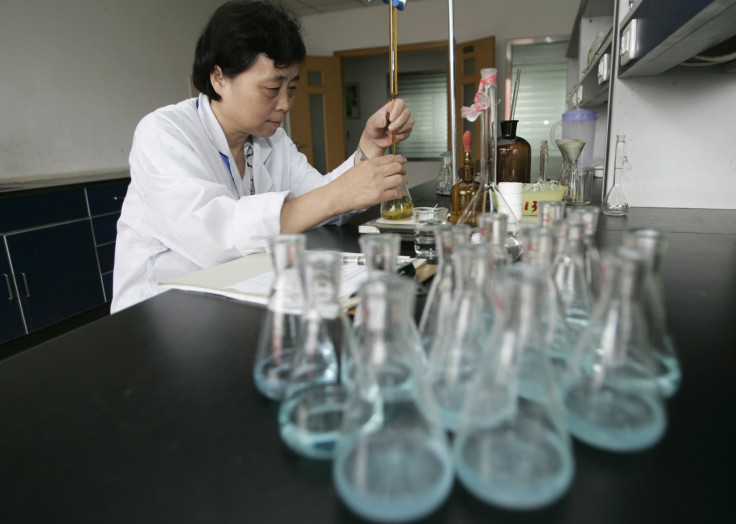China’s Scientific Credibility Marred By Wrongdoing, Top Medical Journal Says

A top medical journal is warning China that it must do a better job of preventing plagiarism and fraud in its scientific research. Editors of the Lancet published an editorial Friday calling on the Chinese government and leading research institutions to change the way researchers are evaluated, rewarded and punished for misconduct.
The Lancet, ranked second out of 150 leading journals in medicine, says that failure to comply would compromise the legitimacy of research findings from one of the world’s scientific heavyweights. The current system, the editors say, encourages China's scientists to cut corners and rewards wrongdoing.
“Current huge investments in biomedical research will not translate into new discoveries or more reliable medical evidence without a sea change in China's research culture and regulatory systems,” the editors say.
The magnitude of China’s scientific contributions can hardly be overstated. It is second to the U.S. in scientific output, as measured by the number of studies published (in English) to scholarly journals. China spent $257 billion on research and development in 2012 and is set to overtake the U.S., Japan and Europe as the world’s leading spender on research and development within the next five years, as calculated by the OECD (Organisation for Economic Co-operation and Development).
However, the editors say the nation’s results -- even those from the country’s most prestigious research universities and institutions -- have too often been compromised by plagiarism, ghostwriting and fabrication. Just last month, BioMed Central, an open-access publisher based in Britain, retracted 43 papers, most of them from Chinese researchers, after discovering that reviewers who had supposedly signed off on the studies were made up by agencies hired by the original authors.
Jigisha Patel, associate editorial director for research integrity at BioMed Central, told the Washington Post that the publisher didn’t consider this to be a problem exclusive to China. “We get a lot of robust research out of China,” she said. “We see this as a broader problem of how scientists are judged.”
Still, the Lancet's editors point to a few reasons why Chinese scientists seem to be caught up in scientific scandals more often than their peers in other countries. Researchers often get promotions and bonuses based mostly or solely on the number of studies they’ve produced and the prestige of journals in which they are published. The editors also say that China lacks proper scientific oversight, including a governing body that can impose punishment on researchers who stray from protocol.
“Without fundamental changes to its academic incentive system, there could be long-term consequences for Chinese science, with the danger that this loss of trust will lead to fewer opportunities to collaborate with institutions abroad, and potentially build such skepticism that people will stop using research from China,” Scott Edmunds and Rob Davidson, who work for Open Data Hong Kong, wrote in an opinion piece published to the South China Morning Post on Tuesday.
The Lancet's editors called on three of China’s leading agencies responsible for setting scientific priorities and distributing research funding -- including the National Health and Family Planning Commission, Ministry of Science and Technology and the Ministry of Education -- to address these issues and ensure the trustworthiness of the nation’s future contributions, the size and importance of which no one doubts.
© Copyright IBTimes 2024. All rights reserved.






















